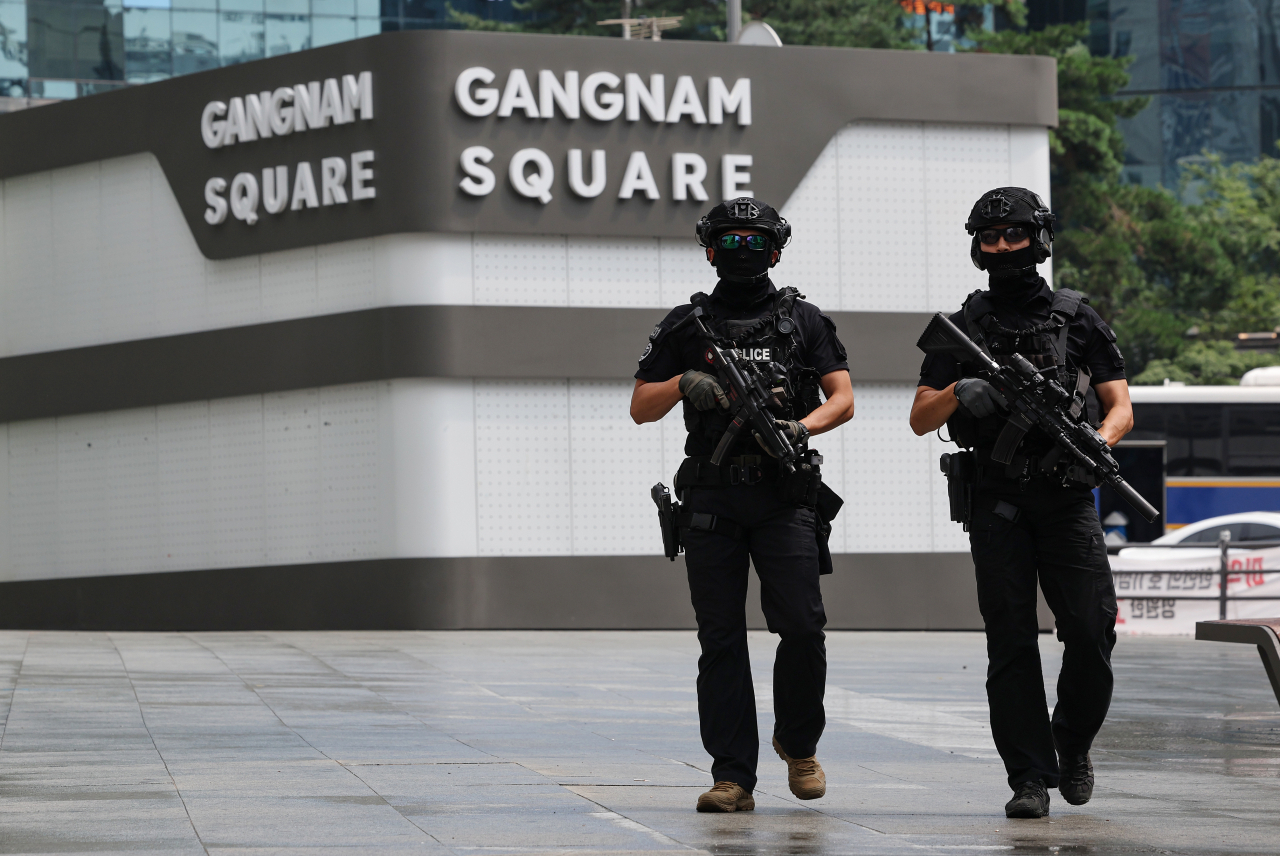 |
Police officers guard near the Gangnam station in southern Seoul on Sunday. (Yonhap) |
South Korea, terrorized by a series of stabbing sprees all over the country in the past month, is pondering if its police need more liberty in deploying force when confronting a suspect.
Earlier this month President Yoon Suk Yeol said that the country’s “entire police force would be mobilized” to prevent the recurrence of stabbing attacks at random.
But police officers on the front lines complain they are being held liable for use of force even when judged to be necessary on the scene.
On the workplace online community called Blind, an anonymous user with a verified officer account wrote in a post Friday that his colleagues were “losing morale” over reactions that police failed to respond assertively or quickly enough to the series of stabbing attacks.
In the post, the user alleged that officers were “severely limited” from using force even under reasonable circumstances, citing past court rulings that made officers pay damages for the way they handled armed suspects.
Within the police, there have been consistent demands for allowing police use more force during encounters with violent suspects, to make arrest and to protect themselves and citizens, according to an officer in Seoul. “In the wake of the knife attacks, these demands have certainly grown,” he said.
This is not the first time calls escalated for giving police immunity from using force in violent situations.
In 2019, multiple petitions were filed with the presidential office pleading increased police use of force after a video footage of officers struggling to get ahold of a 19-year-old suspect wielding a knife went viral. That same year, an officer was forced to pay damages worth 320 million won for tasering a mentally disabled woman with knives in her hands. The woman died from injuries from being tasered.
Some argue that police are overwhelmed with the wider-ranging investigative jurisdiction they were tasked with under the former Moon Jae-in administration. Under the reform led by the Democratic Party of Korea president, police took on investigative responsibilities had been held by prosecutors for the past 70 years.
According to a Korea Bar Association survey of 511 attorneys taken in December last year, 86 percent said they were experiencing delays in police investigations after the police’s investigative jurisdiction widened. Similarly, 84 percent said criminal cases were pending beyond the appropriate timeframe at the police stage since the reform.
One police officer in Seoul said that although the overall workload has increased as a result of the reform, the ability to control the recent stabbings or other violent crimes “does not have a direct correlation” to the police’s expanded investigative authorities.
In a press conference on Sunday, Democratic Party floor leader Rep. Park Kwang-on characterized the knife attacks as “acts of terrorism.” “Fear is running rampant in Korea, once considered one of the safest among developed countries, due to the series of heinous crimes,” he said.







![[Today’s K-pop] Blackpink’s Jennie, Lisa invited to Coachella as solo acts](http://res.heraldm.com/phpwas/restmb_idxmake.php?idx=644&simg=/content/image/2024/11/21/20241121050099_0.jpg)